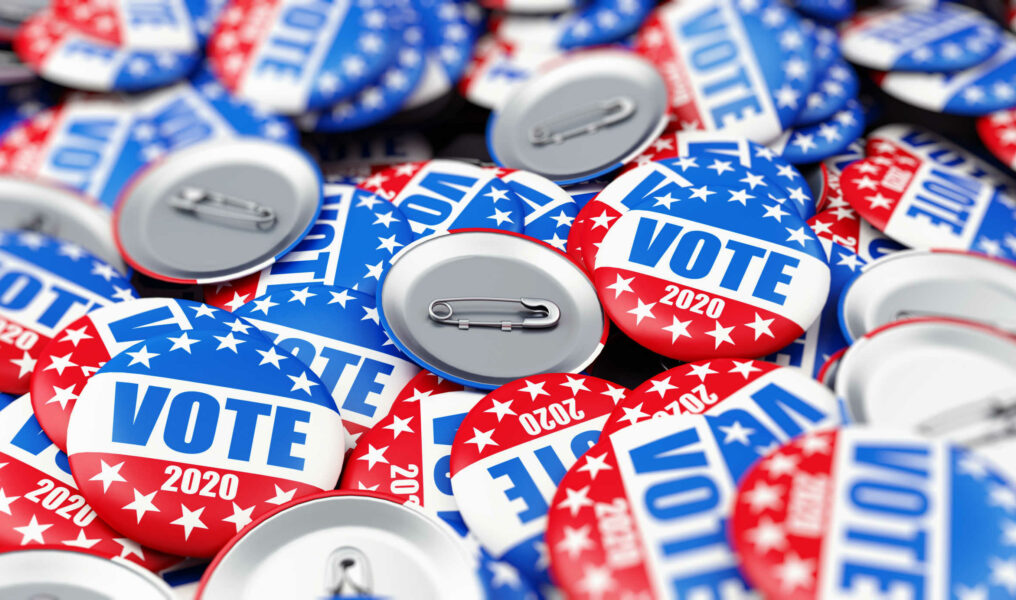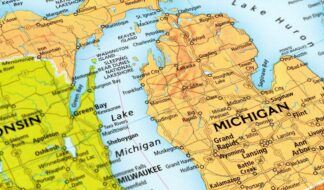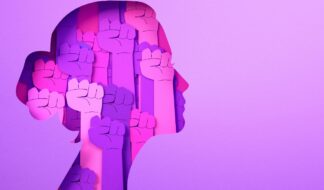Change of Course
As every aspect of the 2020 election cycle adapts to the constraints of social distancing, a campaign in Michigan that seeks to secure equal rights for LGBTQ people has found a novel method to overcome a seemingly insurmountable hurdle. That campaign, Fair and Equal Michigan, recently announced that it would implement electronic signature collection to gather the target 340,000-plus valid voter signatures required to put their initiative before the voters in November if the state Legislature does not adopt the measure once the signatures are turned in and verified. Thus far, the campaign reports having collected 150,000.
"We have always had a pretty strong risk mitigation plan," said Fair and Equal Michigan co-chair Trevor Thomas. "We always had an internal target of 542,000 signatures in the event of the unexpected. Obviously, COVID-19 has changed operations in a number of ways in communities, and so we have changed with it."
Prior to launching this effort, Fair and Equal Michigan has been able to collect more than 700 signatures using a petition-by-mail system over the past several weeks, Thomas said. That simply requires filling out a paper ballot and sending it back, postage paid.
"We wanted to make sure that we reached everyone possible during this extraordinary time," Thomas said. "And that's where discussions started on the ability to do e-signatures."
To keep the campaign moving forward while adhering to Gov. Gretchen Whitmer's "stay home, stay safe" order, registered Michigan voters who support amending the Elliott-Larsen Civil Rights Act to include protections for sexual orientation and gender identity and expression may go the Fair and Equal Michigan website fairandequalmichigan.com/sign to request an electronic form and follow the steps. Organizers estimate this will take about three minutes. Requiring two-factor authentication, the process requires users to enter a valid driver's license or state identification number; information will be cross-referenced with Michigan's list of registered voters.
The company contracted to process the signatures, DocuSign, is "the most trusted and widely used in this environment," according to Thomas.
Used by more than 800 agencies at all levels of government, the company meets or exceeds the highest global security standards and meets the Uniform Electronic Transaction Act as adopted in Michigan.
Is This Legal?
No ballot initiative in Michigan has tested the use of electronic signature collection for their campaign before. For that reason, Between The Lines posed a number of questions to Fair and Equal Michigan's legal counsel, attorney Steve Liedel of the Dykema law firm. He maintains that it is not only legal under the UETA, but it is also strengthened by Executive Order 2020-41. That order, effective April 9, is for the purpose of "[e]ncouraging the use of electronic signatures and remote notarization, witnessing and visitation during the COVID-19 pandemic."
The executive order explicitly states the use of electronic signatures is permissible "unless the law specifically mandates a physical signature." As Liedel points out, nowhere in Michigan election law does it specify that a signature on a ballot petition requires pen and paper.
"Unlike some other laws in Michigan, and election laws in other states relating to petitions that might require such a thing … requiring blue or black ink, or to manually affix their signature to a paper petition document, the election law in Michigan just requires the petitions to be signed … by a certain number of registered voters," Liedel said. "The only legal issue that Fair and Equal Michigan confronts with this process under the Michigan elections law is the requirement that for a signature to be valid and counted, it has to be … signed in the presence of a circulator. And that's a hurdle that Fair and Equal Michigan dealt with when they launched their mail campaign."
In order to overcome that challenge for the petition-by-mail campaign, each signer of the petition also serves as the circulator and it is thus signed twice, once for each role. It's how the electronic signature method works, too, and has always been permitted within Michigan's election law: when collecting signatures in person, the circulator, who signs the petition as such, may also sign the petition if qualified. Liedel clarified that this shouldn't be thought of as "witnessing" one's own signature, as for a will.
"You're just certifying that the petition was signed in your presence and, to your belief, the person is a registered voter. It's always been permitted. There's no requirement that it be a second person," he said.
Because the signatures are not collected in person, that does open up the possibility for fraud. While Liedel acknowledged this, he explained how there may be a lesser likelihood of fraud with electronic signatures than with the traditional method of collection.
"If you consider regular petition-gathering in a public space, you wouldn't even have to have your roommate's ID or birthdate," Liedel said. "You could take her name or any other name, sign it and sign the petition in the name of another person. It has occurred in the past, and [it] could occur, and there's no mechanism to check, 'Well, who signed that petition?' How do I know?"
He pointed out that there have been efforts in the past by some groups to invalidate ballot petitions by using "bad" signatures in this way.
"With electronic signatures, in addition to everything you are required to provide under physical signature gathering, you've got to provide identification number, date of birth," Liedel said. "There is the ability to compare the signature vs. the signature that's in the voting records in the same way with a paper signature because … it's going to be required to sign either using a stylus, a finger on a phone or tablet, or a mouse on a PC."
In addition, signing up to use the system requires an email address, so using someone else's identity would require access to their email or using or creating another one. With the electronic record of the digital signature — when it was signed, which address was used, etc. — one might say there is more of a paper trail than there is when using actual pen and paper to sign a petition.
Because using this technology requires a driver's license or state ID, it excludes those voters who lack such documentation. Voters in Michigan who don't have that documentation are a small but no less important minority. They may still participate in the campaign by using the petition-by-mail system, as paper petitions don't require ID.
Liedel addressed the question of whether other strategies were considered, such as lowering the threshold for signature collection — as the governor of New York did by executive order — or extending the deadline.
As it happens, the number of signatures required is set in state Constitution, and Liedel said he's not aware of a way the governor could waive a constitutional provision like that.
"My advice to Fair and Equal Michigan was focused on allowing them to use a mechanism that did not require the suspension of a state law," Liedel said. "It's narrowly focused; it's additionally supported by the governor's executive order."
Finally, there is precedent for Fair and Equal Michigan's actions outside of the state. For example, Arizona and Boulder, Colorado, permit digital signatures for ballot petitions. In Utah, the state Supreme Court ruled that it was legal, then the state Legislature later enacted a law that prohibited it. Likewise, Tennessee is one state whose election law explicitly states that one must "manually affix" a signature.
Next Steps
Fair and Equal Michigan informed the state of their plans and are moving forward. A spokesperson from the office of the Secretary of State said they have yet to conduct a "full legal analysis."
Liedel said the Bureau of Elections may decide to consult with the office of the attorney general or the governor regarding whether what they are doing follows her executive order.
At this point, with 150,000 signatures collected, 340,000-plus valid signatures required and 542,000 signatures set as a goal, Fair and Equal Michigan has a steep hill to climb by May 27 — assuming they succeed in any legal challenge over the use of electronic signatures.
Thomas is resolute.
"We currently have plans in place to test ROI return in the digital space, automated call space, texting space, email space," Thomas said, referring to return on investment. "And where the bulk of assistance will come from — in the spirit of getting it right the first time — in January when we announced, we did it where we didn't stand alone. We had more than 50 organizations and individuals that have followings [who] stand with us, and their numbers have increased over the past six months or so. And then we have leaned on our corporate partners to notify their employees."
Thomas mentioned "exciting announcements" that would be coming soon — one being the recent news that the campaign has the support of Michigan's Big Three automakers.
"We're all in this together," Thomas said. "And we encourage anyone with a social space or private friend group to notify them and to leverage all communications channels for the good of equality and trying to get this done."










